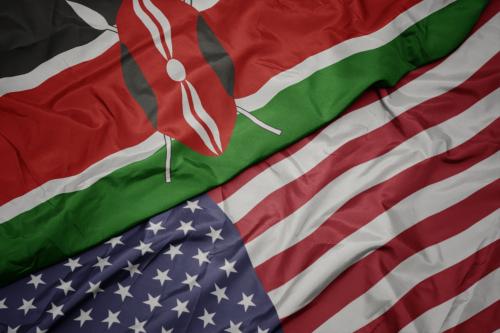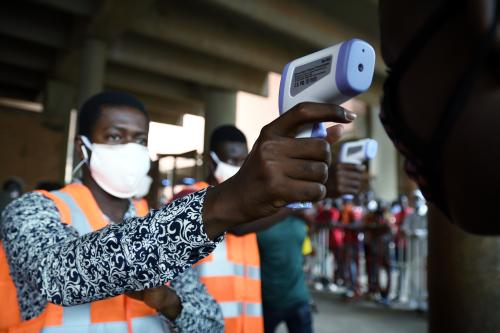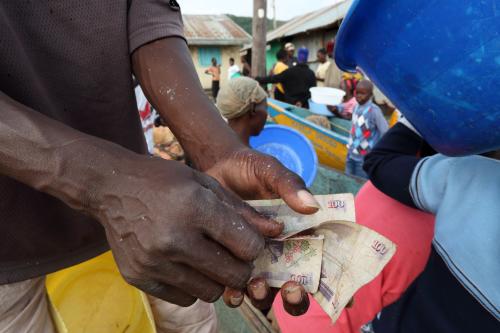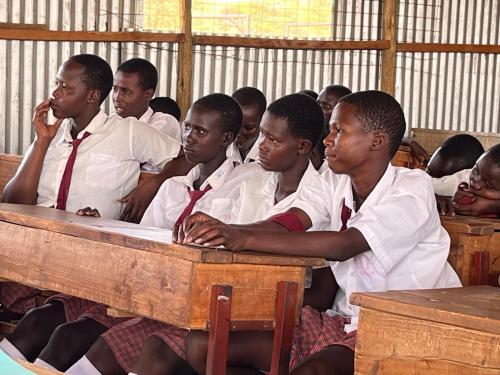New loans and grants announced across the continent in response to COVID-19
The International Monetary Fund (IMF) approved the largest emergency loan in its history on Monday, providing South Africa $4.3 billion as it deals with its most prolonged recession since World War II. The IMF said that the loan will address the “severe economic impact of the Covid-19 shock” as well as the challenge of debt sustainability following the pandemic. South Africa had previously received $1 billion from the New Development Bank and $300 million from the African Development Bank, and it hopes to secure up to $2 billion from the World Bank.
The IMF also approved a debt relief package worth up to $24.97 million for Burundi with the goal of assisting the country to service its debt over the next couple years. The IMF has now awarded $251.24 million in debt relief to 28 developing countries from its Catastrophe Containment and Relief Trust this year, funding that it hopes will free up fiscal space for public health and economic recovery needs.
Also this week, the African Development Bank (AfDB) approved a series of pandemic-related relief packages. The bank will provide $97.7 million to Rwanda and $37.1 million to Djibouti, while also awarding grants (from the bank’s $10 billion COVID-19 Response Facility) of $69 million to Ghana, $31.6 million to Uganda, and $53.3 million each to Gambia, Liberia, and Sierra Leone. In other AfDB news, also this week, an independent probe announced that it has cleared AfDB president Akinwumi Adesina of misconduct, verifying the findings of an AfDB-led inquiry earlier this year.
Prime Minister Khaire out after vote of no confidence
On Saturday, July 25, the parliament of Somalia voted to remove Prime Minister Hassan Ali Khaire from office. One-hundred and seventy of the 178 members backed the motion, which stated that Khaire failed to “pave the way for democratic elections” including by improving the unstable security situation posed by al Shabaab militants. President Mohamed Abdullahi Mohamed has named Deputy Prime Minister Mahdi Mohamed Guled to serve as interim prime minister, according to the president’s office.
Somalia has for years set its sights on “one person, one vote,” or a universal suffrage election, but has not been able to implement the policy in the country’s previous two elections. In 2012, 135 clan elders chose the parliament, who in turn selected the president. In 2016, 14,025 clan-representatives held a run-off election in an airport hangar at Aden Adde International Airport in Mogadishu. Lawmakers had aimed to hold the country’s first fully democratic election in a half century in 2021, but now that goal is shrouded in uncertainty.
Khaire, also a Norwegian citizen and former primary school teacher in Norway, was new to politics when he was named prime minister in 2017. As a member of the Hawiye clan, he had served to balance power with the Darod president in accordance with the 4.5 clan system, which traditionally has led to the Darod and Hawiye clans each taking one of the highest two positions of office. He had previously worked at the British firm Soma Oil and Gas, where he was the director of the Africa department.
Political updates in Mali and Côte d’Ivoire
In Mali, the Economic Community of West African States (ECOWAS) regional bloc continued to work toward brokering a political agreement between President Ibrahim Boubacar Keïta and a protesting opposition. Earlier this week, the ECOWAS negotiators recommended a deal wherein the 31 candidates elected to the country’s parliament earlier this year under contested circumstances step down and that by-elections be held. The plan also includes an inquiry into the deaths of 11 anti-government protesters earlier this month. Although the protestors are calling for Keïta’s resignation, ECOWAS instead called for the rapid formation of a unity government that includes the opposition. However, the opposition coalition leading the protests, known as M5-RFP or the June 5 Movement, has rejected the proposed ECOWAS plan.
In Côte d’Ivoire, the ruling Rally of Houphouëtists for Democracy and Peace (RHDP) has nominated current President Alassane Ouattara to run for president again after the recent death of the party’s former nominee and current prime minister, Amadou Gon Coulibaly. Notably, earlier this year Ouattara had already declined to run for a third term in favor of a successor. As of this writing, Ouattara has not yet accepted the nomination, but plans to give a speech on August 6 during which experts believe he will announce his decision. Notably, the opposition claims that Ouattara is not eligible to run again.
The Brookings Institution is committed to quality, independence, and impact.
We are supported by a diverse array of funders. In line with our values and policies, each Brookings publication represents the sole views of its author(s).









Commentary
Africa in the news: New funding to fight COVID-19 in Africa, Somalia’s prime minister voted out, and political updates in Mali and Côte d’Ivoire
August 1, 2020